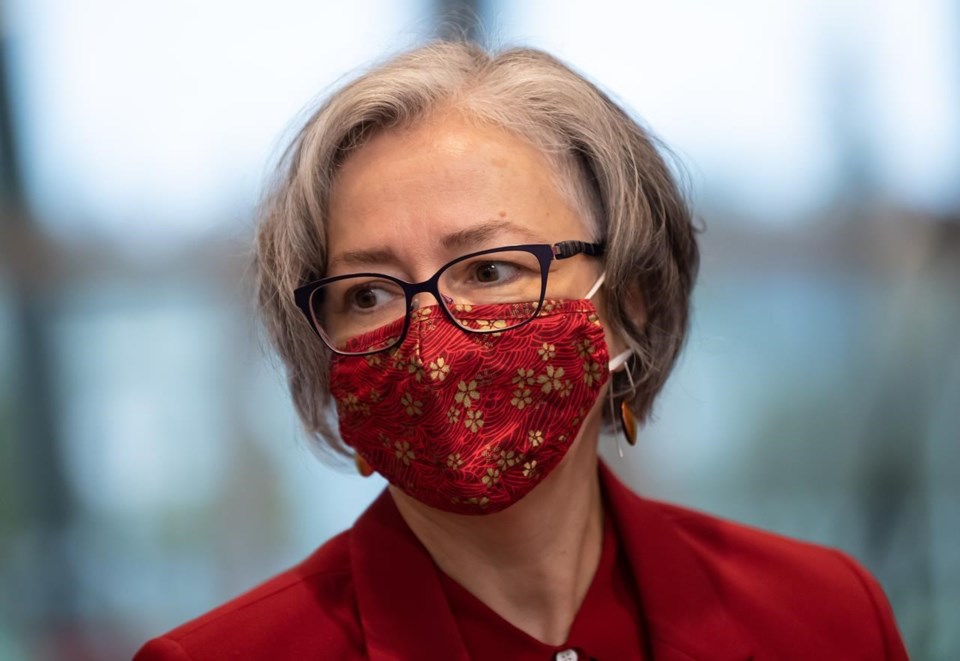VICTORIA — British Columbia's education minister says capacity at school-based events will be capped at 50 per cent for spectators to provide some physical distancing because proof of vaccination will not be required.
Jennifer Whiteside says the measure is in contrast to the lifting of capacity limits starting at midnight for community-based gatherings, where COVID-19 vaccine passports must still be shown.
Whiteside says the capacity cap applies to extracurricular events, whether they are on or off school property, and marks a return to the rules that were in effect last fall.
Provincial health officer Dr. Bonnie Henry has declared school-based activities an essential service, so visitors do not need to present a vaccine passport.
B.C. reported 11 more deaths on Wednesday, bringing the total number of fatalities to 2,777.
Just over 93 per cent of residents aged 12 and older have received their first dose of COVID-19 vaccine, 90.5 per cent have had a second shot, while 53.3 have received a booster dose.
The number of people in hospital is down slightly to 762 with 121 in intensive care.
Meanwhile, Health Minister Adrian Dix says about two-thirds of all non-urgent cancelled surgeries in the province are in the Interior Health region.
He says the proportion of health-care workers calling in sick is higher in that region, so there are some challenges in clearing backlogs.
"But most everywhere else, we're going to be aggressively moving to rebook surgeries in the coming weeks because people need their surgeries. And even if we describe these as non-urgent scheduled surgeries, they're all important, they're all necessary," he says.
This report by The Canadian Press was first published Feb. 16, 2022.
The Canadian Press



